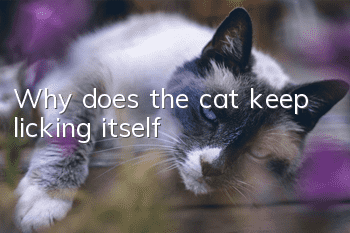How to raise a cat to maturity

In the early stage of raising a cat: get familiar with the smell and keep a distance; in the middle stage of raising a cat: build trust and attract food; in the later stage of raising a cat: cultivate a tacit understanding and distinguish rewards and punishments. As long as you master the skills of raising a cat and understand the mood and living conditions of the cat, you can It can quickly shorten the distance between you and your cat.
How to raise a cat to maturity
1. Early days of raising a cat: Get familiar with the smell and keep your distance
Cats’ sense of smell and hearing are even worse than those of dogs. If you have just bought a kitten home, the kitten's mood will be varying degrees of nervousness and panic. In the first few days when kittens enter your home, they will hide and only be willing to approach you when eating; and if you bring home an adult cat, the cat's resistance will be more obvious. At this time, the poop scavenger must understand that if you want the cat to put down your guard, you must make the cat familiar with the smell of your home. Moreover, it also leaves the cat’s scent on you.
For example:
When the cat first entered the house, he jumped on the sofa and lay there for a while, and then left again. At this time, the scavenger should sit on the sofa where the cat just lay; the purpose of this is to let the cat's scent stay on you. Over time, cats get used to the smell and environment of your home and will sense the strong scent of their own on you. In addition, remember to keep a safe distance from your cat. You can observe how many meters away you are from the cat, and the cat will hide away from you. Remember that position and maintain that distance. In the process of getting along with the cat, you can gradually close the distance; when the cat is willing to let you get close to it and stroke it, it means that the cat has accepted you in its heart.
2. The middle stage of raising cats: building trust and attracting food
What do cats like most? Besides sleeping, there is only food. No matter what kind of cat you have, it’s hard for them to resist the temptation of good food. Therefore, the cat’s willingness to approach you and interact with you is only the first step; you have to leave your presence in the cat’s consciousness.
For example: every time the cat comes near you and behaves well, reward the cat with some snacks. Over time, cats will develop conditioned reflexes; when you call their names and you go to the place where cats eat, they all know that you are going to give them delicious food. This is to cultivate the cat’s conditioned reflex and deepen the cat’s subconscious dependence on you. With dependence, the cat will naturally deepen its trust in you. During this process, you also need to maintain the frequency of interaction and play with the cat. Cats are very curious and equally interested in play. If the cat is willing to maintain long-term interaction with you, then your image in the cat's mind will become higher and higher.
3. The later stage of raising cats: Cultivate a tacit understanding and clear rewards and punishments
Generally speaking, if you have a cat for more than 2 years, you can call it "o; late stage of cat raising. The later stage mentioned here is not the later stage of the cat’s life, but the stage when the relationship between you and the cat becomes deeper and deeper. Just like falling in love, the middle stage begins with the passionate love period, and the later stage begins with the passionate love stage. The dull stage. At this time, you need to deliberately cultivate and train the tacit understanding between you and the cat. You want the cat to feel the meaning behind some of your actions.
For example: when you go to the bedroom to sleep, the cat will no longer make noises; when it is time to get up in the morning, the cat will wake you up; when you want to feed the cat, they will run over to you. Of course, when the cat makes a mistake, your coughing and meowing will cause the cat to pause in its movements. Developing a tacit understanding with your cat will increase your cat's affection for you. Not only that, you also need to make the cat feel in his consciousness: rewards and punishments are clear. If a cat is obedient and sensible, it will be rewarded; if a cat makes a mistake or gets into trouble, it will naturally be punished. Only in this way can the cat be convinced that you are its owner and maintain the cat's dependence and trust on you.
- What should I do if my cat likes to sleep on the bed? How to make my cat develop good habits
- Can cats still be vaccinated when they are two years old?
- Can cat ringworm be transmitted to humans? Causes and prevention of cat ringworm!
- Why do cats like to sleep next to their owners’ pillows?
- Cat has no reaction after swallowing foreign body for 48 hours
- Can cats eat cream?
- Do cats have to take hair removal cream?
- What should you do if your cat has a fever? What to do if your cat has a cold or fever!
- How to make a cat vomit hairballs? How to prevent hairball disease
- American Wirehair Cat Training Methods



